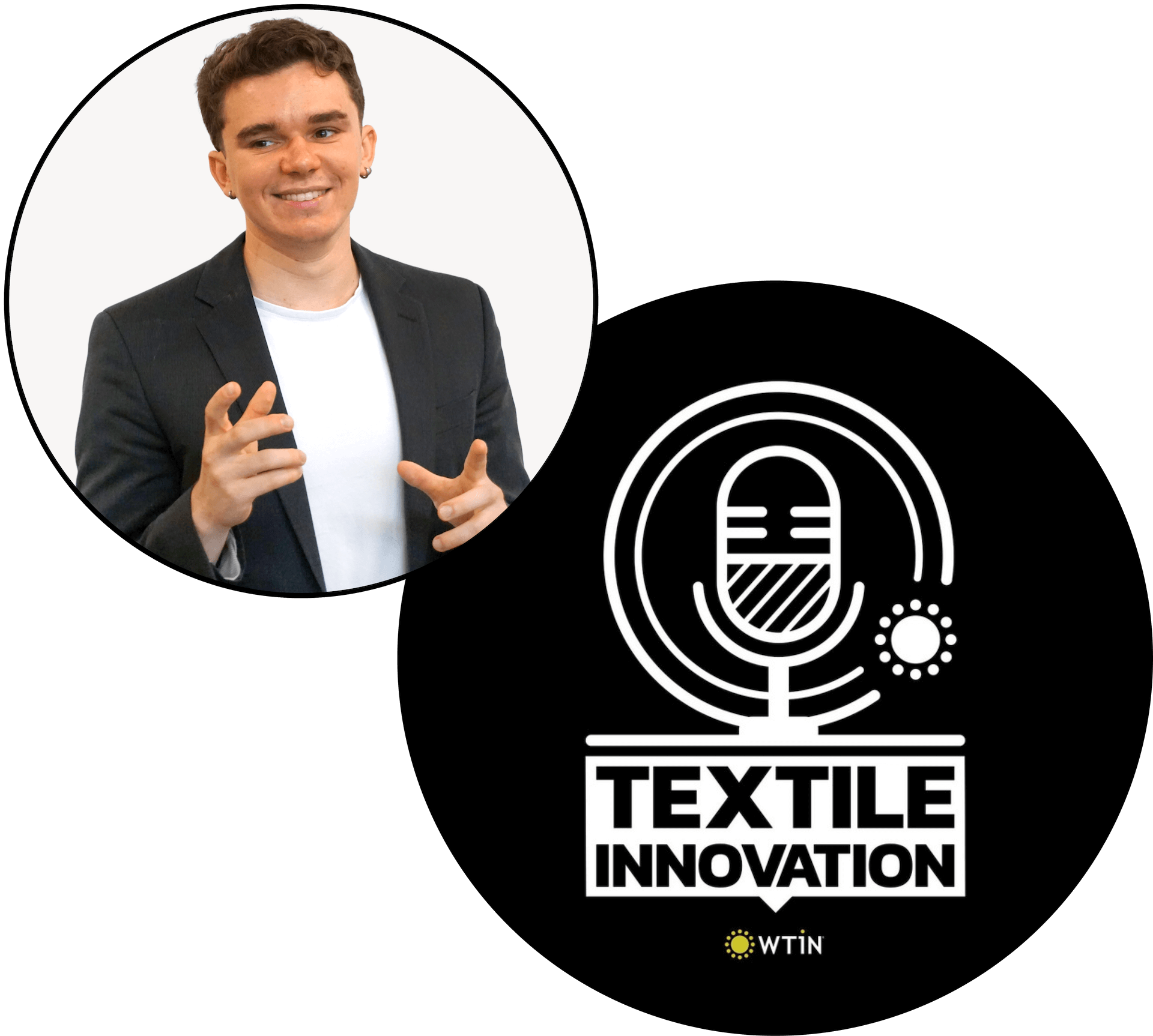We are excited to share that our CEO, Zimri T. Hinshaw, spoke on the “Houston Innovator’s Podcast” hosted by Natalie Harms from Houston’s InnovationMap this morning. On episode 255 of the podcast, Hinshaw discusses the origins of his biobased materials company, Rheom Materials, and how the company found its home in Houston, Texas.
Listen Here
Episode Highlights
Company Beginnings
Hinshaw shared his story growing up on the US Air Force Base in Okinawa and attending a Japanese high school where he was initially inspired by his classmate’s Bōsōzoku leather jackets to become a fashion designer. However, the real beginnings of Rheom Materials came upon discovering that no vegan, plastic-free materials existed. “That’s when I realized that was a better opportunity: to supply the materials themselves” stated Hinshaw.
Moving to Houston
After participating in the SOSV IndieBio Program in NYC, Hinshaw quickly realized New York might not be the right place to scale his biobased materials company. Houston became Rheom’s new home largely due to its affordable living cost, the investor network, climate ecosystem, and the amazing chemistry talent pouring in from the oil and gas industry. Hinshaw reflected, “I could see a very quick pathway to getting set up very fast and very affordably”.
Rebranding to Rheom Materials
“It was definitely hard to give up the name Bucha Bio…but as a company, we pivoted our technology away from growing kombucha sheets…we wanted to expand the scope” remarks Hinshaw. The new name which combines the words ‘rheology’ (the flow of matter) and ‘form’, better fits the company’s process and offerings. “Rheom” essentially describes how a melt-extruder works, where the biopolymers flow into place and then solidify, or form, the final product.
How We Scale Our Materials
Learning from his struggles scaling grown kombucha leather, Hinshaw explained the epiphany that led to Rheom’s scaleability today. By veering away from grown polymers Hinshaw and his scientists decided to focus on creating unique materials by tapping into existing manufacturing. “We use the exact same equipment that plastics use to manufacture…it’s called melt extrusion”
Our Houston Lab
Hinshaw highlighted the importance of their Houston-based laboratory in the East End Maker Hub equipped with an in-house melt-extruder, batch mixer, and other testing equipment. The lab is where their specialized material creation takes place. Zimri explained “right now, we can create a new formulation and test [that] new formulation in 10-15 minutes…we can only do so many in a day but we want to double that. We want to 10x that!”
Series A Plans
Hinshaw also touched on Rheom’s current fundraising goals and his plans for deploying the capital after the round. He highlights “It’s about expanding the scope of the company.” For him, that includes ramping up material formulation speed by expanding the lab and technical team. Specifically mentioning “a big part of that is to jump into biofibers…we’re excited about the potential to start melt-spinning our material into fibers. We’ve got a lot of clients that are interested in that specifically.”
The Future for Rheom
Looking ahead, Hinshaw shared his ultimate vision for the company: “to build a company that is manufacturing materials all over the world in millions and millions of pounds, licensing out our formulations…to continue creating new formulations, new materials… leather alternatives, hard plastics, other soft plastic alternatives, foams, fibers, and just replacing our entire material world with more sustainable chemistries…and really have a huge impact, “ he concluded.
To hear the full conversation, check out the episode on the Houston Innovators Podcast! We’d like to give a huge thank you to Natalie Harms for taking the time to interview Zimri.



